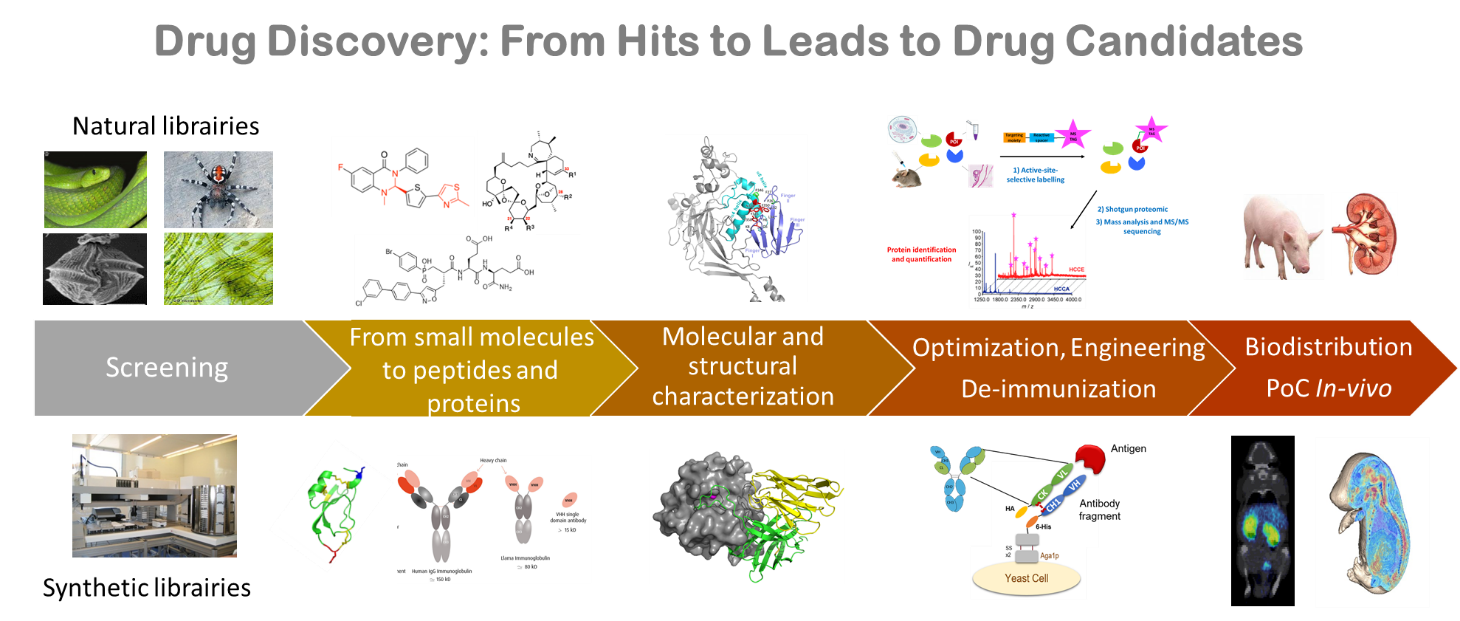Published on 29 August 2022
Body text 1
The Molecular Engineering for Health Unit (SIMoS) carries out research focused on the identification and pre-clinical development of bioactive molecules (small molecules but mostly peptides and proteins) isolated from natural or synthetic libraries. Their developments include the in-vitro and in-vivo characterization of their functional properties, the molecular and structural analysis of their mode of action and the optimization of their druggability by chemical/biological engineering aiming to increase their potency and selectivity or to suppress their immunogenicity.

We develop broad-spectrum inhibitors of bacterial toxins that interfere with the intracellular trafficking machinery. As a result, these inhibitors have also antiviral, anti-intracellular bacteria and anti-parasitic activities. We also develop a fragment of the diphtheria toxin as an inhibitor of HB-EGF for the treatment of rapidly progressive glomerulonephritis, a rare kidney disease.
We developed original chemical and enzymatic strategies for the site-selective modification of proteins in vitro and in vivo. By relying on these approaches, we design new chemical tools such as protein-drug conjugates and chemical probes with potential diagnostic and therapeutic applications in various pathologies including cancer, inflammation and neurodegenerative diseases.
The team focuses its research on the mechanisms and early stage evaluation of immunogenicity of therapeutic proteins and antibodies and on the engineering of antibodies using Yeast Surface Display. Our main objective is to develop new antibody-related molecules with high affinity, controlled selectivity and low immunogenicity.
Cells and biomolecules with new or improved function can bear considerable socio-economic impact. Our team is interested in using synthetic biology tools and concepts in order to have a deeper insight on biosystems, to create live machines and to obtain engineered molecules applied to research and health.
The laboratory (LPEM) research activity is based on the discovery, pharmacological characterization, engineering and in-vivo pre-clinical evaluation of natural peptides and phycotoxins to develop innovate drugs and efficient detection kits.
Analyses facilities
Publications
Top page